From the business of health care to biomedical engineering, the Class of 2025 — Dell Med’s sixth graduating class — enters their next phase of training equipped with knowledge and skills gained from a unique medical curriculum.
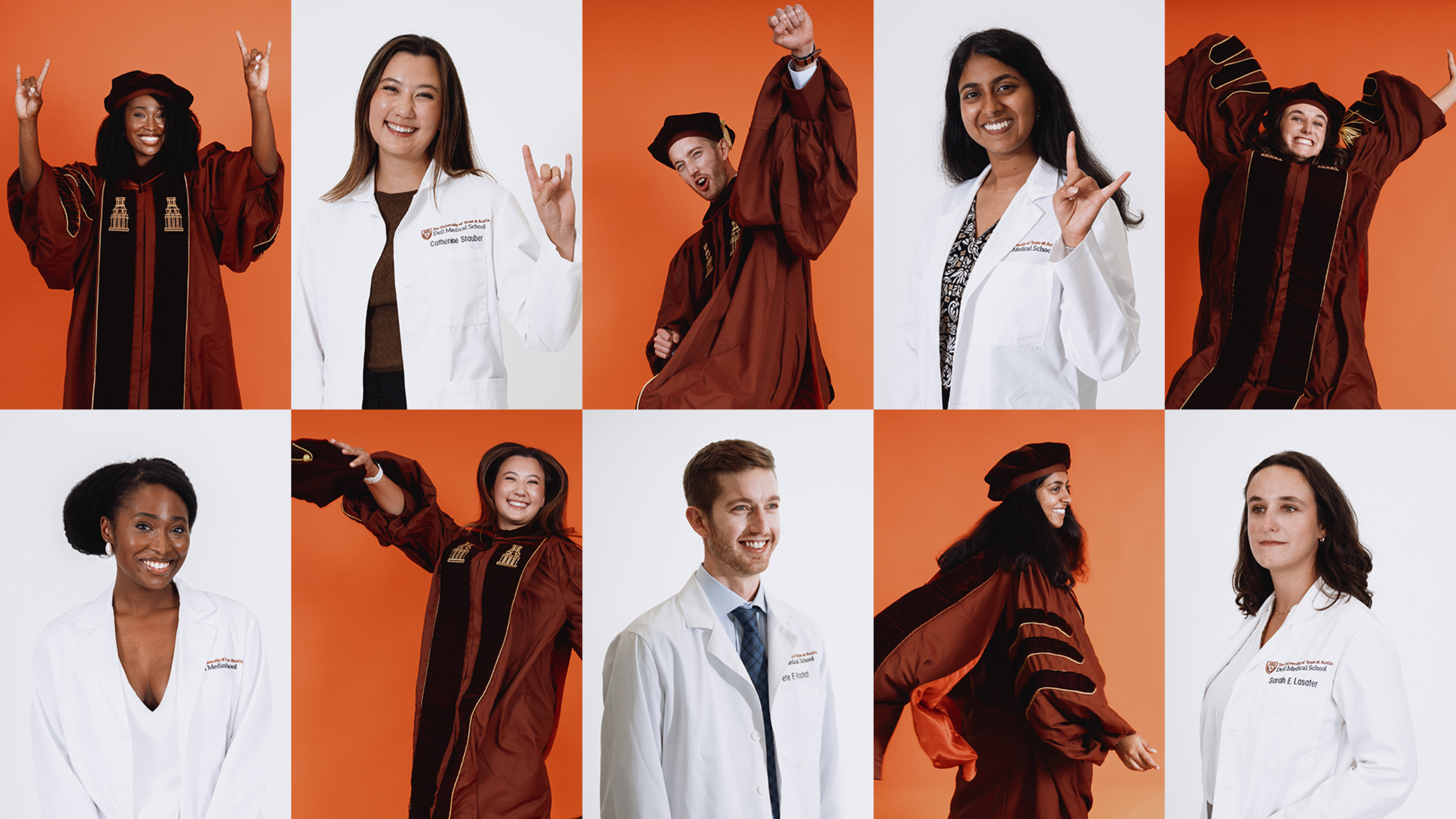
And as Dell Med anchors the rapid buildout of a new, integrated academic medical center in one of the fastest growing cities in the nation, these students represent a crucial investment in the workforce of the future: Nearly 40% of the class will practice in primary care specialties, and 45% will stay in Texas to train at a time when more than 40% of the existing physician workforce will reach retirement age in the coming decade.
“The accomplishments of the Class of 2025 are a testament to their commitment to patient care grounded in curiosity, ingenuity, collaboration and compassion,” said Claudia Lucchinetti, M.D., dean of Dell Med and senior vice president for medical affairs at The University of Texas at Austin. “It has been a privilege to witness these future physician leaders develop the critical skills and expertise that will shape the future of health and medicine. We will watch with pride as they carry forward the same drive, resilience and vision that distinguished them as students at Dell Med.”
Meet five members of the Class of 2025 now.
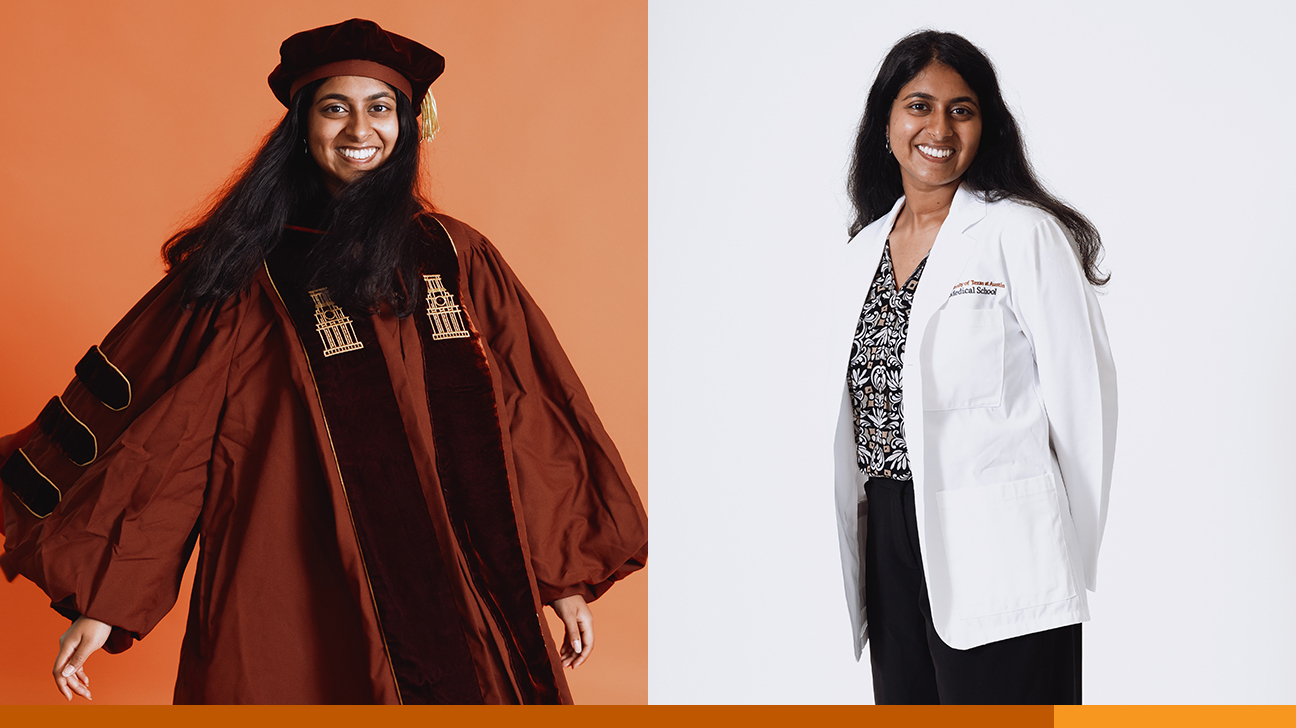
Sahana Prabhu, M.D.
Hometown: Flower Mound, Texas
Match result: Psychiatry, Dell Medical School
You’ll be staying in Austin to train and serve patients here. What lessons will stay with you as you transition to residency?
I helped lead our free, student-run C.D. Doyle Clinic, which takes place at the Esperanza Community, an encampment for individuals transitioning out of homelessness.
I once evaluated one of the community residents for chronic diarrhea and unexpectedly encountered her on my colorectal surgery service months later. Following her procedure, I was able to speak with the surgical team about my experiences at Esperanza Community and elevate important considerations about our patient’s home, including its infrastructure, resources and on-site providers. We discharged her with adequate wound care supplies and a warm referral to our free clinic to check up on her after her procedure. This encounter helped me recognize how understanding patients’ homes represents a core aspect of patient advocacy — and also that our patients’ experiences do not exist in vacuum, but are shaped by several entities within the larger health system.
How will your master’s degree in design, earned during your Growth Year, support your psychiatry career?
Psychiatry and design are both fields that are person-centered, innovative and iterative. I enjoyed seeing how psychiatrists crafted regimens keeping in mind patients’ unique circumstances and conditions — whether it be wanting to avoid a side effect or wanting to treat two conditions at the same time. There wasn’t a one-size-fits-all approach, and it often took some back and forth to design a regimen that worked best for our patients. When an optimal regimen was achieved, it was so meaningful to hear patients articulate that they felt as themselves again and see them reach a stable baseline where they could heal, function in society and pursue a meaningful life.
Dell Med Grads Matching to Texas
Building the Workforce of the Future
Data shows that residents tend to stay and practice where they train. Of Dell Med’s Class of 2025, 45% matched to programs in Texas, with 20% matching to Dell Med.
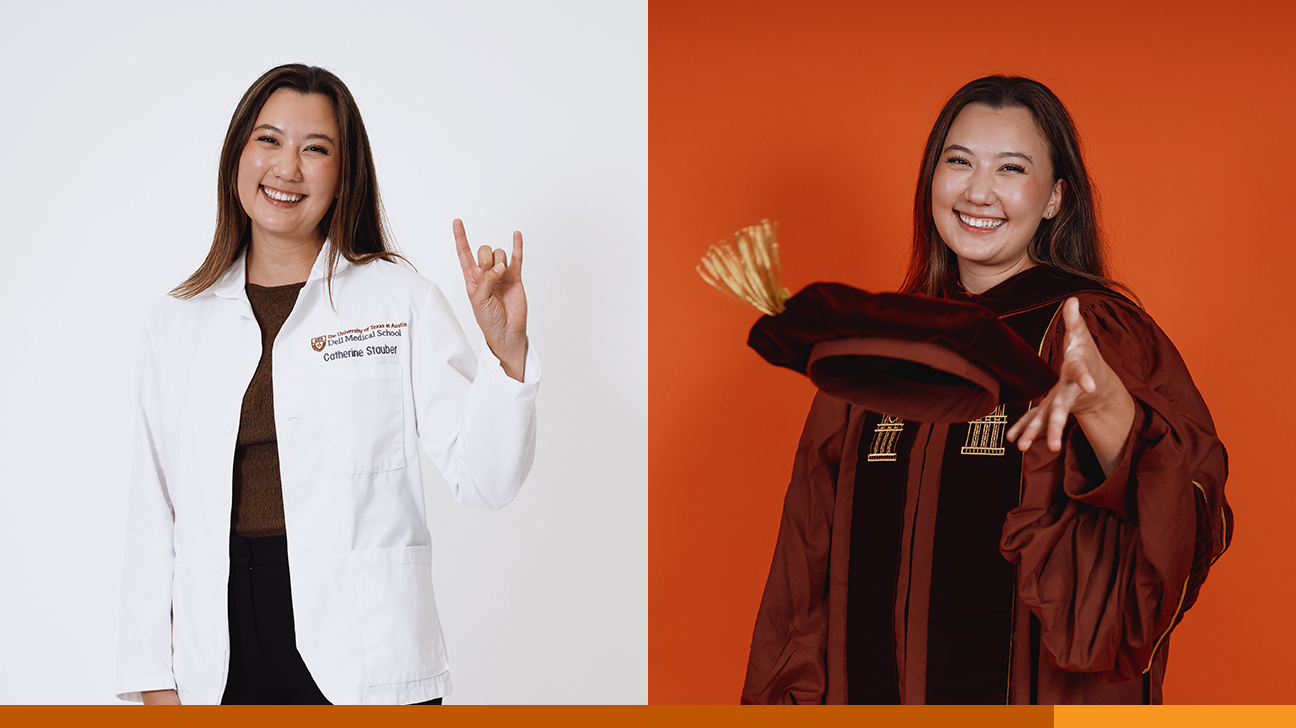
Catherine Stauber, M.D.
Hometown: London, United Kingdom
Match result: Thoracic Surgery, University of Utah
How did your research efforts influence your future plans?
For my Growth Year, I worked with faculty mentors at the Texas Center for Pediatric and Congenital Heart Disease to design and execute a project analyzing the comprehensive cost of congenital heart disease in the outpatient setting in Central Texas for both patients and families, and also the health care system.
This project had a profound impact on my professional development as it enabled me to incorporate the value-based care concepts I had learned about at Dell Med with my interests in health care costs and caring for the congenital heart population. It’s work I look to continue as a physician leader to improve patient outcomes.
What’s one medical school memory you’ll never forget?
During a community outreach event at a science museum for children with congenital heart disease, I taught kids and their family members what their heart looked and how it functioned. I remember showing one mother what her child’s anatomy looked like as a result of having a repaired tetralogy of Fallot lesion. Her face lit up getting to see on a real 3D model what her child’s heart looked like before and after their operation. This served as a reminder to me of how impactful it can be for parents to have 3D models or detailed drawings of their child’s heart, and I look forward to incorporating these tools in my career as a cardiothoracic surgeon.
Providing Essential Access to Care
Addressing the Primary Care Physician Shortage
Seventeen students from the Dell Med Class of 2025 are entering into primary care specialties, which include family medicine, internal medicine, combined internal medicine and pediatrics, obstetrics and gynecology, and pediatrics.
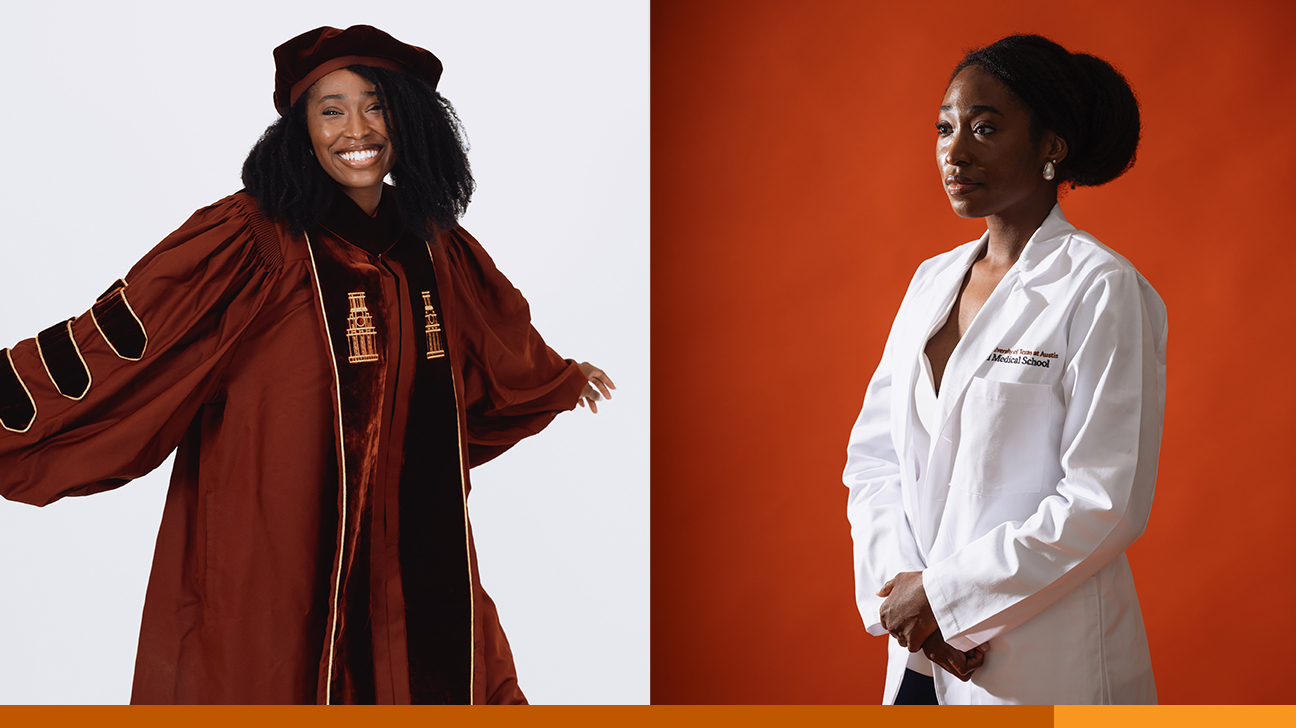
Nneka Ede, M.D., M.S.
Hometown: Beaumont, Texas
Match result: Dermatology, Dell Medical School
You came to medical school with an engineering background. How did that influence your journey?
I pursued a master’s degree in biomedical engineering during my third year, which included the Clinical and Innovation Design fellowship. This path felt like a natural extension of my background as a software engineer and my belief that the future of health care lies at the intersection of technology and patient care.
My master’s program taught me how to apply technical solutions to complex health care problems. Through the fellowship, I collaborated with physicians, technicians and extracorporeal membrane oxygenation specialists to design a prototype aimed at accelerating extracorporeal cardiopulmonary resuscitation initiation (using a device to aid in resuscitation when standard CPR is not adequate). These experiences have helped prepare me to develop innovative, equitable solutions from concept to implementation.
Why dermatology?
My interest in dermatology began with my own childhood struggles with hidradenitis suppurativa, but it deepened after a one-week elective in pediatric dermatology during my second year of med school. Helping children navigate their skin conditions brought back memories of my own experiences, and I felt so incredibly grateful to be a part of their care.
Looking ahead, I hope to leave a mark on dermatology by integrating technologies like artificial intelligence to improve diagnostic accuracy and expand access to care. I am particularly committed to technological equity, striving to create solutions that ensure quality care across all socioeconomic statuses, ethnicities and regions. By the end of my career, I hope to have helped build a more inclusive, equitable and technologically advanced field.


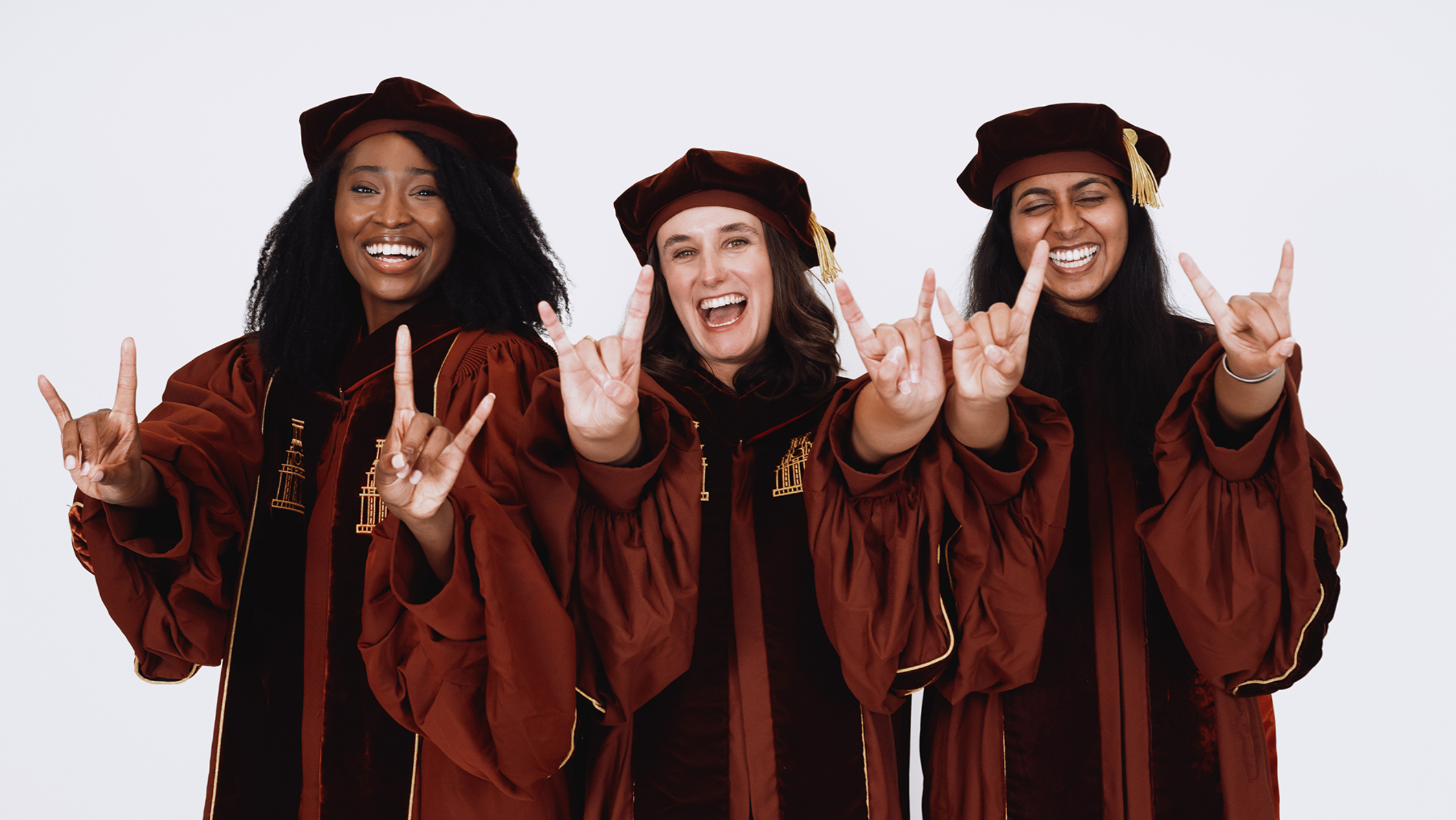
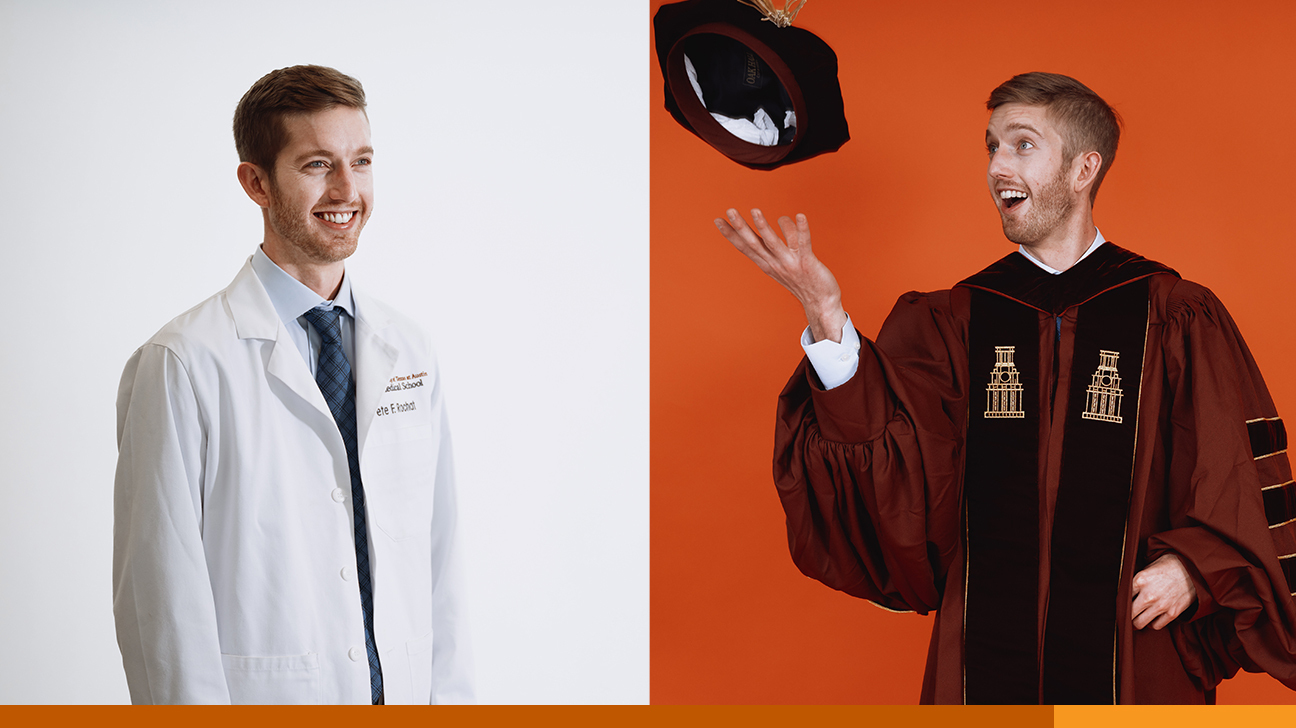
Pete Rochat, M.D., M.Ed
Hometown: Mason, Texas
Match result: Family Medicine, Memorial Hospital
Why family medicine?
Family medicine drew me in because it combines everything I value — broad medical knowledge, deep patient relationships and the chance to serve entire communities across the lifespan. My journey through different specialties helped me realize I didn’t want to give up any part of medicine, and family medicine lets me keep it all. I hope the mark I leave on the field is one of humble service to my community — someone who led with compassion and helped people live healthier, happier lives.
How did your Growth Year impact your future ability to care for patients?
I earned a master’s degree in education during my third year, because I believe great doctors have to be great teachers. Whether it’s explaining a diagnosis or helping patients manage chronic illness, how we communicate and educate truly matters. I started exploring this back in undergrad and doubled down during med school, learning how brains absorb information, what motivates people and how to turn that into better care. Now I want to use everything from retrieval practice to motivational theories to help patients actually understand and own their health. This degree won’t just make me a better doctor — it will make me a better healer, communicator and leader.
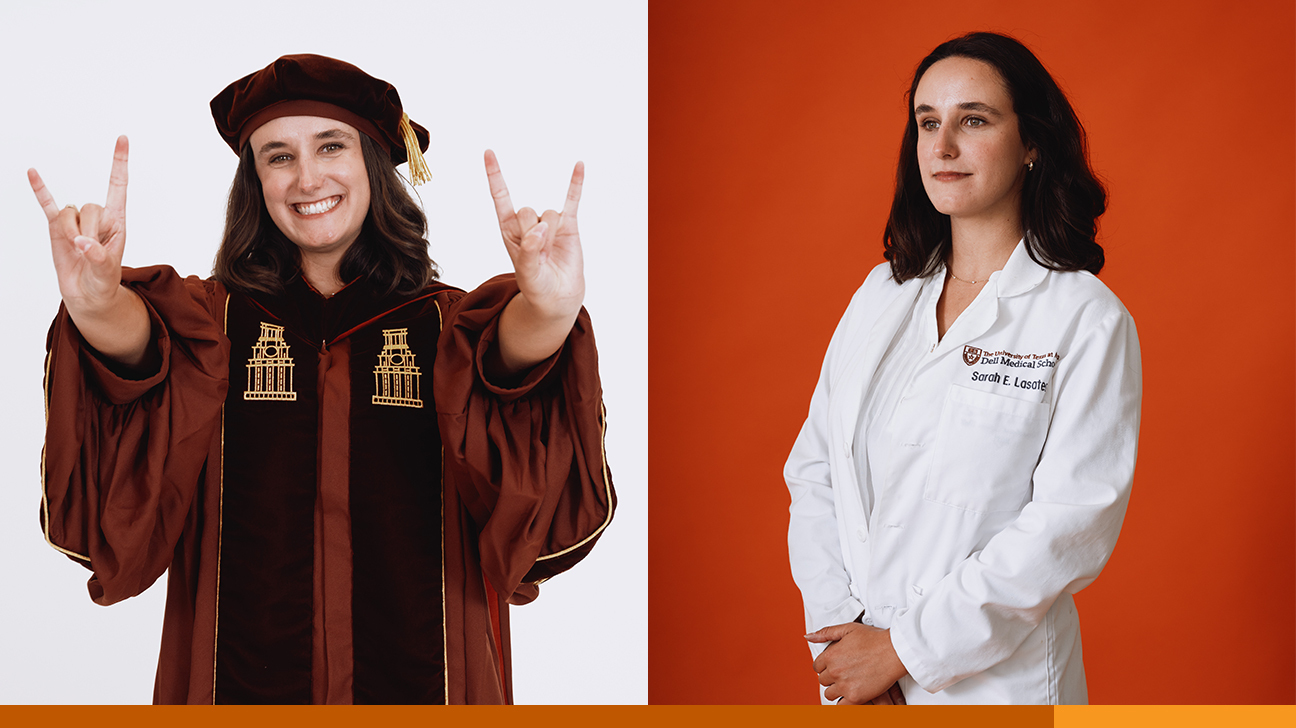
Sarah Lasater, M.D., MBA
Hometown: Houston, Texas
Match result: Pediatrics, Vanderbilt
What inspired you to pursue an M.D./MBA?
It’s hard to change something you don’t understand. Pursuing my MBA gave me concrete leadership and management skills, preparing me to create safer, more effective systems for patients and health care workers alike.
What are you looking forward to most as a pediatrician?
Even in extremely difficult medical situations, it is an enormous privilege to walk with and counsel families. Pediatrics will allow me to treat a range of patient ages, a range of pathologies, and become proficient in hands-on procedures at the same time while sharpening my ability to educate and counsel families. Pediatrics is inherently centered around advocacy, which is something I plan to make a core part of my career — advocacy for the child and advocacy for the families.
Finally, children are fun and resilient, and there are moments of joy baked into the specialty as a result. I hope when my medical career is over, I have diagnosed and treated children to the very best of my ability, where my counsel and expertise has given them and their families comfort and helped them heal. I hope that I have had a career as an excellent practicing physician and team member and as a relentless health systems leader — there is so much work to be done.